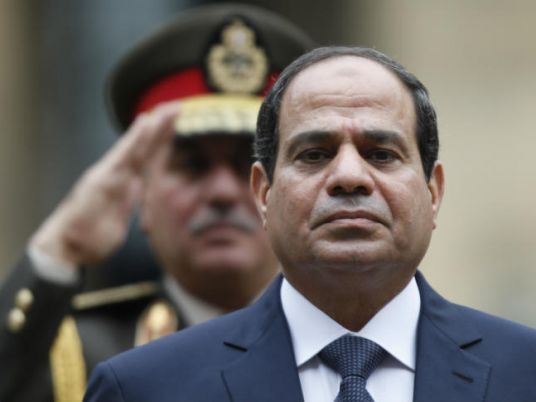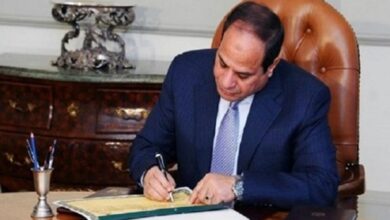
Egypt on Thursday cleared a final hurdle to long-awaited parliamentary elections seen as decisive in cementing the rule of Abdel Fattah al-Sisi, who ousted President Mohamed Mursi, and excluding the banned Muslim Brotherhood from politics.
The draft law defining voting districts still requires the approval of Sisi, who won a presidential election in May after leading the army's ouster of Mursi, but that is seen as a formality.
Many Egyptians welcome Sisi's strong hand after nearly four years of turmoil unleashed by a 2011 uprising, but critics say he is delaying elections in order to consolidate his rule.
No date has been set for the parliamentary poll, but Sisi promised visiting businessmen last month it would be held before an international investment summit in March, trying to reassure them the poll would not be put off indefinitely.
Egypt is seeking to win back foreign investors and tourists scared off by political turmoil and an Islamist insurgency based mostly in the lawless Sinai Peninsula bordering Israel.
The most populous Arab country has been without a parliament since June 2012, when a court dissolved the democratically-elected main chamber, reversing a major accomplishment of the 2011 uprising that toppled autocrat Hosni Mubarak.
In the absence of parliament, Sisi has used legislative authority to introduce economic reforms that have impressed investors, while also curtailing political freedoms.
The People's Assembly is comprised of 567 seats, with 420 elected as individuals and 120 through winner-takes-all lists with quotas for women, Christians and youth. The remaining seats are appointed by the president.
"It's very clear this law is being tailored and adjusted to avoid any Muslim Brotherhood candidates getting into parliament and also to ensure that members who are loyalists of President Sisi are the ones to be elected," said Khaled Dawoud, spokesman of the liberal Dostour Party.
Political sources say the delay in organising the election suggests government anxiety about the election outcome. With Mubarak's National Democratic Party gone, loyalists have scrambled to form alliances to secure Sisi a sizeable bloc of support.




